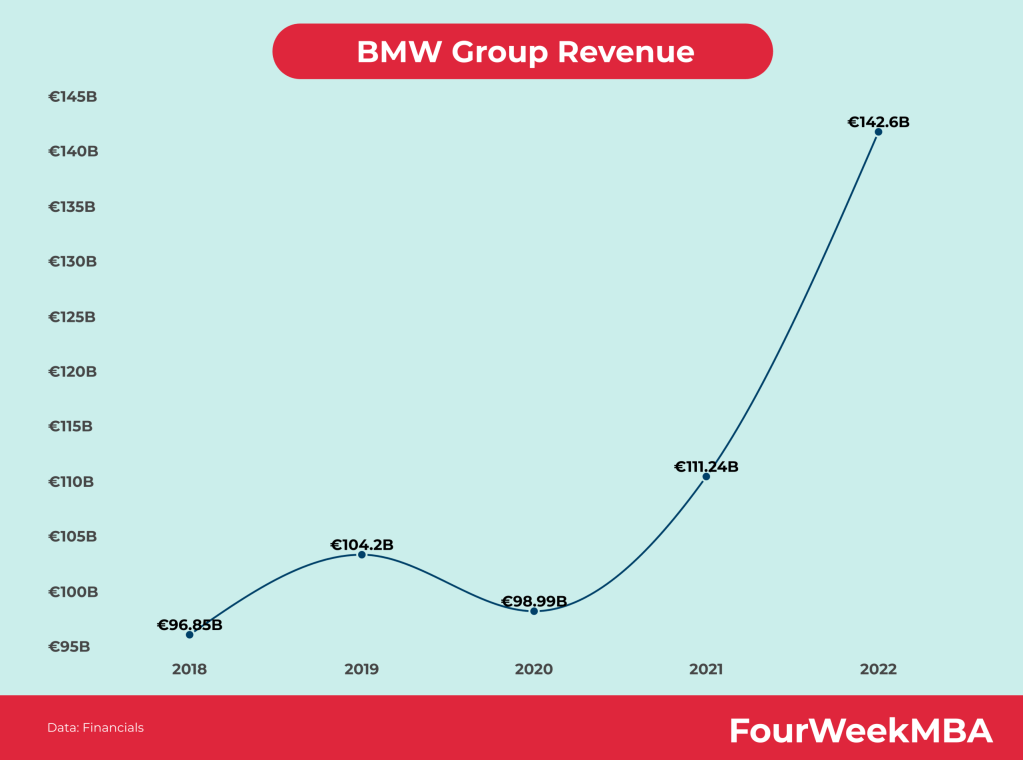The China Market: Challenges And Opportunities For BMW, Porsche, And Competitors

Table of Contents
Challenges Facing Luxury Car Brands in China
The China market, while lucrative, presents several hurdles for luxury car manufacturers. Successfully navigating these challenges is crucial for long-term success.
Intense Competition
The Chinese luxury car market is fiercely competitive. Established players face pressure from multiple angles.
- Domestic Competition: Local brands like Geely and BYD are rapidly improving their technology and brand image, offering strong competition in both traditional and new energy vehicle (NEV) segments. Their deep understanding of the local market gives them a significant advantage.
- International Rivals: Mercedes-Benz and Audi, among others, are already established players, vying for the same high-end customer base. This creates a constant battle for market share and brand dominance.
- Rise of NEVs: Chinese NEV manufacturers are rapidly innovating and capturing significant market share, forcing established brands to accelerate their electrification strategies to remain competitive. This shift requires substantial investment in research and development.
Regulatory Hurdles
China's regulatory landscape is complex and constantly evolving, posing significant challenges for international automakers.
- Stringent NEV Quotas and Incentives: The government's push towards electric vehicles means manufacturers face quotas for NEV production and sales. While incentives exist, navigating the complexities of these policies requires significant expertise.
- Complex Homologation Processes: Getting vehicles approved for sale in China involves a lengthy and detailed homologation process, adding time and cost to market entry.
- Data Security and Privacy Regulations: Increasingly strict data security and privacy regulations necessitate careful consideration of data handling and storage practices. Compliance requires significant investment in IT infrastructure and expertise.
Understanding Chinese Consumer Preferences
Catering to the unique preferences of Chinese consumers is vital for success in the China market. These preferences are evolving rapidly.
- Feature Preferences: Chinese consumers often prioritize specific features and technologies, such as advanced driver-assistance systems (ADAS), large touchscreens, and connected car services. Understanding these preferences is crucial for product development.
- Brand Image and Social Status: Luxury car brands play a significant role in projecting social status in China. Building and maintaining a strong brand image is paramount.
- Demand for Customization: There’s a growing demand for customized options and services, reflecting the increasing desire for personalized experiences. This requires flexible manufacturing and sales processes.
Supply Chain Disruptions
Global supply chain disruptions pose a significant threat to automakers operating in China.
- Component Shortages: Global chip shortages and other component scarcity issues can severely impact production volumes.
- Port Congestion: Delays and congestion at Chinese ports can lead to significant disruptions in the supply chain.
- Geopolitical Factors: Trade tensions and sanctions can further complicate the supply chain and impact the availability of key components.
Opportunities for Growth in the Chinese Luxury Car Market
Despite the challenges, the China market offers substantial opportunities for growth in the luxury car segment.
Massive Market Size and Growing Affluence
China's vast population and burgeoning middle class represent a huge potential customer base.
- Rising Disposable Incomes: The increase in disposable income among Chinese consumers fuels demand for luxury goods and services, including premium automobiles.
- Demand for Premium Brands: The preference for high-quality, established brands presents a significant opportunity for luxury car manufacturers.
- Growing Aspirational Class: A large segment of the population aspires to own luxury vehicles, creating a significant pool of potential customers.
The Rise of the Electric Vehicle (EV) Market
China is a global leader in EV adoption, offering significant opportunities for luxury brands.
- Government Support: Government incentives and policies strongly support the adoption of NEVs, creating a favorable environment for EV manufacturers.
- Consumer Demand: Chinese consumers increasingly prefer electric vehicles, driven by environmental concerns and technological advancements.
- Innovation Opportunities: The market allows for the development and sale of innovative electric luxury vehicles, capitalizing on cutting-edge technology.
Leveraging Digital Marketing and E-commerce
China's advanced digital infrastructure presents opportunities for targeted marketing.
- Social Media Marketing: Platforms like WeChat and Weibo offer opportunities for targeted advertising and engaging with potential customers.
- E-commerce Capabilities: Developing robust e-commerce platforms allows for direct sales and customer interaction.
- Personalized Experiences: Utilizing data to personalize the customer experience through digital channels enhances brand loyalty.
Localization and Customization
Adapting to the specific needs and preferences of Chinese consumers is key to success.
- Customized Features: Offering features tailored to local preferences enhances the appeal of luxury vehicles.
- Cultural Sensitivity: Marketing messages need to resonate with Chinese culture and values.
- Local Partnerships: Building strong relationships with local suppliers, dealers, and service providers is vital.
Conclusion
The China market presents a complex landscape for luxury car brands like BMW and Porsche. While navigating regulatory hurdles and intense competition requires strategic planning and adaptation, the vast market size and growing affluence of the Chinese population provide substantial opportunities for growth. To thrive, brands must prioritize localization, embrace digital marketing, and invest heavily in electric vehicle technology. Mastering the China automotive market is crucial for long-term success in the global automotive industry. Understanding and addressing the specific challenges and opportunities in the China market is crucial for any luxury car brand aiming for significant global growth.

Featured Posts
-
 Emma Stone And Margaret Qualley Debunking The Oscars 2023 Feud Rumors
May 04, 2025
Emma Stone And Margaret Qualley Debunking The Oscars 2023 Feud Rumors
May 04, 2025 -
 Kentucky Derby 2025 Online Streaming A Complete Guide To Pricing And Availability
May 04, 2025
Kentucky Derby 2025 Online Streaming A Complete Guide To Pricing And Availability
May 04, 2025 -
 Katie Nolans Public Statement Regarding Charlie Dixon
May 04, 2025
Katie Nolans Public Statement Regarding Charlie Dixon
May 04, 2025 -
 Gold Market Outlook Understanding The Recent Price Drops In 2025
May 04, 2025
Gold Market Outlook Understanding The Recent Price Drops In 2025
May 04, 2025 -
 Leaked Texts Expose Heated Exchange Between Nigel Farage And Rupert Lowe
May 04, 2025
Leaked Texts Expose Heated Exchange Between Nigel Farage And Rupert Lowe
May 04, 2025
